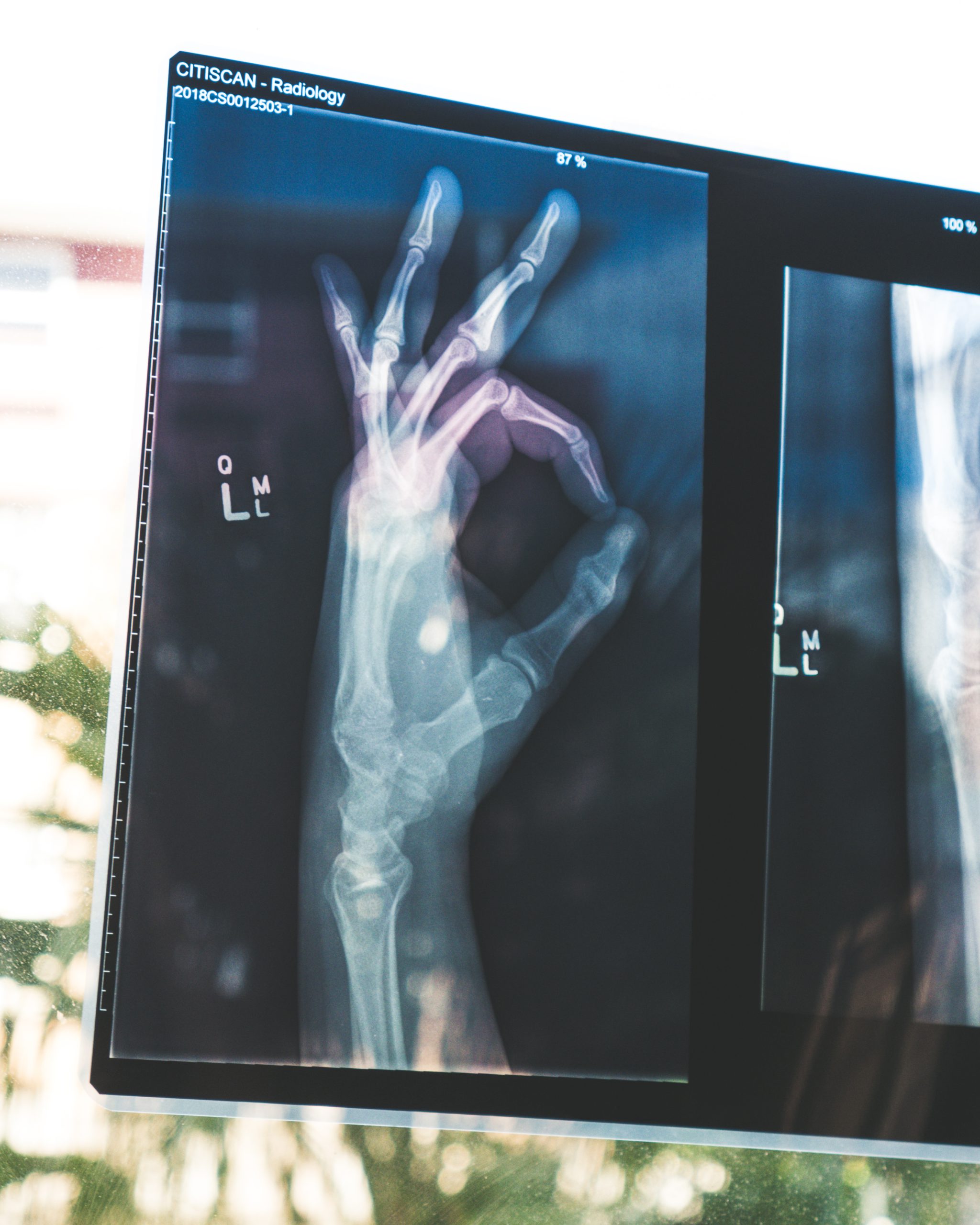SAMe, or S-Adenosyl-L-Methionine, is a naturally occurring compound that plays a crucial role in various biochemical processes in the body. It has gained attention as a dietary supplement for its potential therapeutic effects on mood, joint health, and liver function. It is often used to address conditions like depression, osteoarthritis, and liver disorders. SAMe’s involvement in the synthesis of neurotransmitters suggests that it may have antidepressant effects, and its role in supporting joint health makes it a potential remedy for osteoarthritis. However, it’s important to note that the effectiveness of SAMe can vary from person to person, and consulting a healthcare professional is recommended before starting supplementation, especially if you have underlying health conditions or are taking other medications. To stay informed about the latest research and ensure safe and effective use, it’s advisable to refer to reliable sources for the most current information. So, is SAMe good for kidneys? Let’s delve into that question.
SAMe’s Role in Kidney Health
S-Adenosyl-L-Methionine (SAMe) is a naturally occurring compound that plays a crucial role in various biochemical processes in the body. While SAMe is often recognized for its benefits in mood regulation, joint health, and liver function, its role in kidney health should not be overlooked. The kidneys, vital organs responsible for filtering waste and excess fluid from the blood, rely on a variety of mechanisms to maintain their optimal functioning. SAMe is involved in several of these mechanisms, making it an important factor in kidney health.
SAMe’s Function in the Kidneys
SAMe is involved in the synthesis of neurotransmitters, DNA, proteins, and other molecules necessary for proper cellular function. In the kidneys, SAMe plays a role in regulating inflammation, oxidative stress, and the production of glutathione. These functions are crucial for maintaining a healthy environment within the kidneys and ensuring their efficient performance.
Effects of SAMe on Kidney Health
SAMe’s benefits extend to kidney health through various mechanisms. Its ability to reduce inflammation, protect against oxidative stress, and support glutathione production are particularly relevant in maintaining optimal kidney function.
Benefits of SAMe for Kidneys
The specific benefits of SAMe for kidney health are worth exploring. By understanding how SAMe impacts the kidneys, individuals can gain insight into its potential therapeutic applications.
Reduced Inflammation
Inflammation plays a significant role in various kidney diseases, including chronic kidney disease (CKD) and acute kidney injury (AKI). SAMe has been found to possess anti-inflammatory properties, which may help reduce the extent of inflammation in the kidneys. By doing so, SAMe has the potential to promote kidney health and prevent the progression of certain kidney diseases.
Protection Against Oxidative Stress
Oxidative stress, characterized by an imbalance between harmful free radicals and antioxidant defenses, can damage the kidneys. SAMe acts as an antioxidant, helping to neutralize free radicals and mitigate oxidative stress in the kidneys. By protecting against oxidative damage, SAMe contributes to kidney health and reduces the risk of associated diseases.
Support for Glutathione Production
Glutathione is a powerful antioxidant produced naturally within the body, known for its detoxification properties. SAMe plays a crucial role in the synthesis and maintenance of glutathione levels. By supporting glutathione production, SAMe aids in the detoxification process and promotes kidney health.

SAMe and Chronic Kidney Disease (CKD)
Chronic kidney disease (CKD) is a prevalent and potentially progressive condition that affects millions of people worldwide. SAMe has shown promise in its potential effects on CKD progression.
SAMe’s Potential Effects on CKD Progression
Several studies have suggested that SAMe may have a positive impact on slowing down the progression of CKD. SAMe’s ability to reduce inflammation, oxidative stress, and support glutathione production align with the goals of CKD management. While more research is needed to fully understand the mechanisms and effectiveness of SAMe in CKD, early findings are encouraging.
SAMe as a Complementary Treatment for CKD
SAMe supplementation may be utilized as a complementary treatment for individuals with CKD. Its potential to mitigate inflammation, oxidative stress, and support glutathione production can enhance the conventional management strategies for CKD. However, it is crucial to consult with a healthcare professional before incorporating SAMe into a treatment plan for CKD, as individual circumstances may vary.
SAMe and Acute Kidney Injury (AKI)
Acute kidney injury (AKI) is a sudden loss of kidney function that can occur due to various factors such as infections, medications, or insufficient blood flow to the kidneys. SAMe has shown promise in its impact on AKI.
SAMe’s Impact on AKI
SAMe’s anti-inflammatory properties have been found to play a role in reducing the severity of AKI. By reducing inflammation, SAMe may help protect the kidneys from further damage and aid in their recovery. Additional research is needed to investigate the full extent of SAMe’s impact on AKI.
Potential Benefits of SAMe for AKI Treatment
The potential benefits of SAMe for AKI treatment make it an area of interest for further study. Its ability to reduce inflammation and potentially enhance the recovery process of the kidneys could lead to improved outcomes for individuals with AKI. However, it is important to note that AKI is a severe condition that requires immediate medical attention, and SAMe should be used as a complementary treatment under the supervision of a healthcare professional.

Safety Considerations
While SAMe is generally considered safe and well-tolerated, it is essential to be aware of safety considerations, especially when considering its use for kidney health.
SAMe’s Safety Profile for Kidney Health
SAMe has been shown to have a favorable safety profile, with minimal side effects reported in studies. However, individual responses to SAMe can vary, and it may not be suitable for everyone, particularly those with underlying kidney conditions. Consulting a healthcare professional before starting SAMe supplementation is crucial to determine its appropriateness and dosage for individual circumstances.
Side Effects and Precautions
In some cases, SAMe supplementation may lead to mild gastrointestinal symptoms such as nausea, diarrhea, or bloating. These side effects are generally temporary and subsist as the body adjusts to the supplement. However, individuals with bipolar disorder or those taking antidepressant medications should exercise caution when considering SAMe supplementation, as it may interact with these medications. It is important to discuss potential interactions and side effects with a healthcare professional before beginning SAMe supplementation.
Dosage and Administration
Determining the appropriate dosage and administration of SAMe is essential for achieving optimal kidney health benefits.
Recommended Dosage of SAMe
The optimal dosage of SAMe may vary depending on individual needs and underlying health conditions. Generally, a typical recommended dosage range for SAMe supplementation is between 400 and 1600 milligrams per day. However, it is crucial to consult with a healthcare professional to determine the most suitable dosage for specific circumstances.
Administration Methods
SAMe is available in various forms, including oral tablets, capsules, and powders. These different forms allow individuals to choose the administration method that best suits their preferences and needs. However, it is important to follow the recommended dosage instructions provided by the manufacturer and healthcare professional to ensure safety and efficacy.

Interactions with Medications
SAMe may interact with certain medications, making it vital to consider potential drug interactions when incorporating SAMe into a kidney health regimen.
Possible Drug Interactions with SAMe
SAMe may interact with medications such as selective serotonin reuptake inhibitors (SSRIs), monoamine oxidase inhibitors (MAOIs), and tricyclic antidepressants. These medications are commonly prescribed for various mood disorders. Additionally, medications that affect platelet function, such as aspirin or anticoagulants, may interact with SAMe. It is essential to consult with a healthcare professional to determine whether any medications being taken might interact with SAMe and to prevent any adverse effects.
Consulting a Healthcare Professional
When considering SAMe supplementation for kidney health, it is crucial to consult with a healthcare professional.
Importance of Medical Advice
A healthcare professional can provide valuable guidance on the appropriateness of SAMe supplementation, the recommended dosage, potential interactions with medications, and any other considerations specific to an individual’s health status. They can assess the individual’s medical history, conduct thorough evaluations, and provide personalized advice for incorporating SAMe into a kidney health regimen.
Finding Reliable Sources
In the pursuit of reliable information about SAMe’s role in kidney health, it is advisable to refer to credible sources such as healthcare professionals, academic institutions, and scientific publications. These sources can provide accurate and up-to-date information based on the latest research and clinical guidelines.
Latest Research and Updates
Staying informed about the latest research and updates regarding SAMe’s status and availability is essential for those interested in its potential benefits for kidney health.
Staying Informed about SAMe’s Status and Availability
As of the most recent update in September 2021, SAMe’s status and availability may have evolved. Ongoing research and new developments can shed light on its effectiveness, dosages, and potential uses in kidney health. It is recommended to stay updated with trusted sources, such as scientific literature and reputable healthcare professionals, to ensure access to the most current information.
In conclusion, SAMe plays a significant role in kidney health through its involvement in inflammation regulation, protection against oxidative stress, and support for glutathione production. It shows promise in potentially benefiting individuals with chronic kidney disease (CKD) and acute kidney injury (AKI). However, individual responses to SAMe may vary, and consulting with a healthcare professional is essential before incorporating SAMe supplementation. By staying informed about the latest research and consulting reliable sources, individuals can make well-informed decisions regarding SAMe’s role in kidney health.







